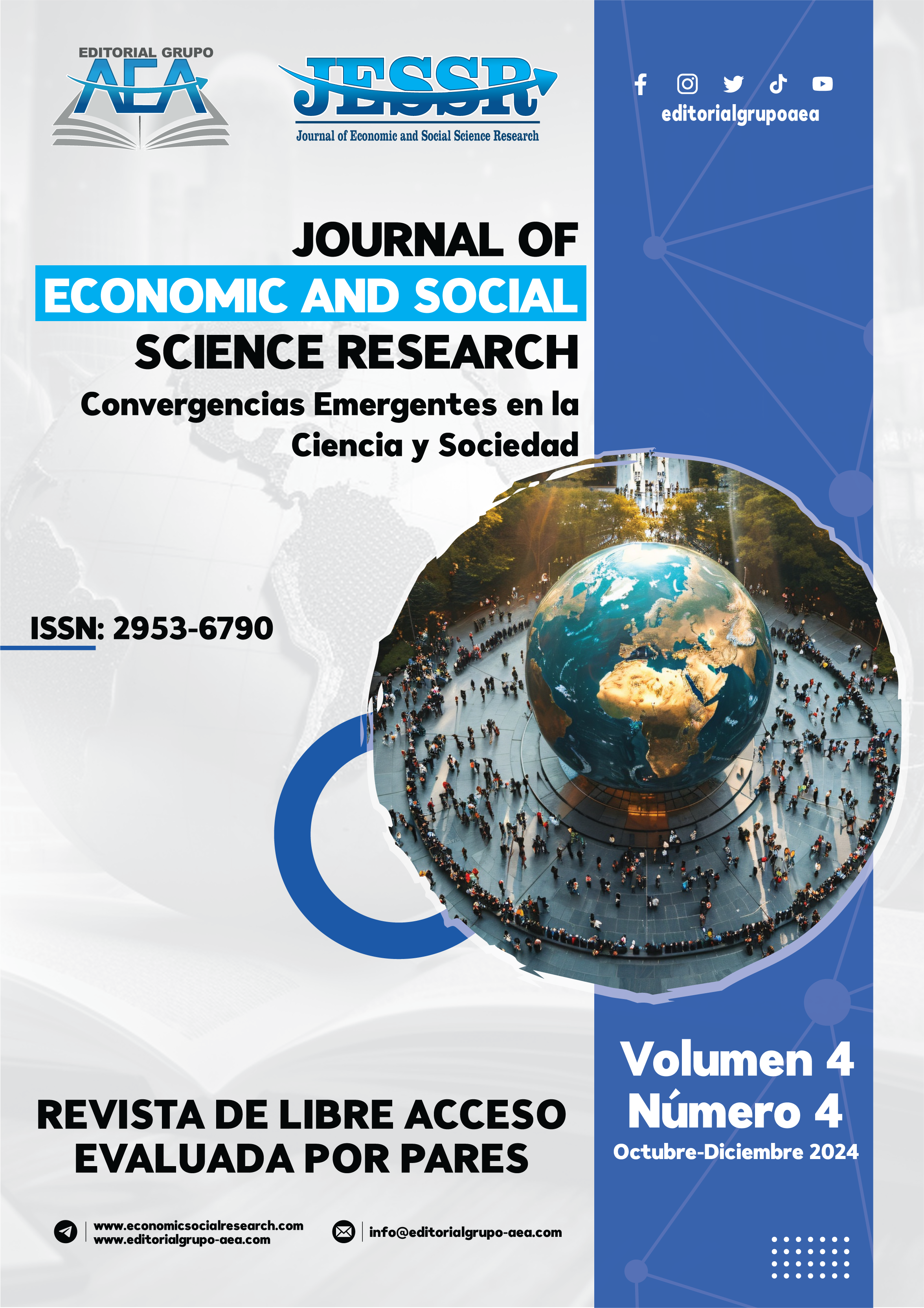Evaluation of Indicators for Integrated Water Resources Management in Watersheds
Main Article Content
Abstract
The paper presents a detailed evaluation of indicators used in Integrated Water Resources Management (IWRM) in river basins. Introduction: IWRM is critical in a context where climate change and increasing water demand complicate the sustainable management of water resources. However, the lack of robust and widely accepted indicators limits the effectiveness of this management. Objective: We sought to conduct a comprehensive review of the scientific literature to identify strengths and weaknesses of existing approaches and propose a conceptual framework to guide future research. Methodology: A literature review was conducted in Scopus, analyzing studies from the last two years. In addition, VOSviewer was used to identify patterns and trends in research. Results: Indicators related to sustainability, water quality and socioeconomic aspects stand out as the most relevant. However, limited adoption of ecological indicators is observed. Discussion: The main limitations include the lack of standardization of indicators and the complexity in integrating socioeconomic and ecological variables. Conclusion: It is crucial to develop and standardize indicators that integrate hydrological, ecological and socioeconomic dimensions, supported by advanced technologies, to improve water management.
Downloads
Article Details
Section

This work is licensed under a Creative Commons Attribution-NonCommercial 4.0 International License.
How to Cite
References
Elmi, A., Melesse, A. M., & Abtew, W. (2023). Advances in remote sensing applications for water resources management. Water, 15(3), 1-14.
Feng, M., Liu, P., Wang, L., & Zhang, X. (2020). Integrating deep learning and optimization to provide decision support for water resource management. Environmental Modelling & Software, 124, 104588.
Gain, A. K., Schwab, M., Mannel, S., & Giupponi, C. (2013). Water resources management in the Lower Mekong Basin: A review of the literature. Sustainability Science, 8(4), 553-574.
Grigg, N. S. (2016). Integrated water resources management: Unified process or debate forum? International Journal of Water Resources Development, 32(5), 673-685.
Grizzetti, B., Bouraoui, F., & Aloe, A. (2012). Changes of nitrogen and phosphorus loads to European seas. Global Change Biology, 18(2), 769-782.
Herd, A., & Wals, A. E. J. (2017). Capacity building for water quality monitoring: A review of global and regional networks. Environmental Education Research, 23(5), 593-617.
Hering, D., Borja, A., Carstensen, J., Carvalho, L., Elliott, M., Feld, C. K., ... & Solheim, A. L. (2010). The European Water Framework Directive at the age of 10: A critical review of the achievements with recommendations for the future. Science of the Total Environment, 408(19), 4007-4019.
Intergovernmental Panel on Climate Change (IPCC). (2014). Climate Change 2014: Impacts, Adaptation, and Vulnerability. Cambridge University Press.
Intergovernmental Panel on Climate Change (IPCC). (2021). Climate Change 2021: The Physical Science Basis. Cambridge University Press.
Loucks, D. P., & van Beek, E. (2017). Water Resource Systems Planning and Management: An Introduction to Methods, Models, and Applications. Springer.
Mehta, L., Allouche, J., Nicol, A., & Walnycki, A. (2014). Global environmental justice and the right to water: The case of peri-urban Cochabamba and Delhi. Geoforum, 54, 158-166.
Molle, F., & Wester, P. (2009). River basin trajectories: Societies, environments, and development. CAB International.
Pahl-Wostl, C., Gupta, J., & Petry, D. (2018). Governance and the global water system: A theoretical exploration. Global Water System Project. Springer.
UNESCO. (2009). The United Nations World Water Development Report 3: Water in a Changing World. UNESCO Publishing.
Vörösmarty, C. J., McIntyre, P. B., Gessner, M. O., Dudgeon, D., Prusevich, A., Green, P., & Davies, P. M. (2010). Global threats to human water security and river biodiversity. Nature, 467(7315), 555-561.
Yang, H., & Zhang, J. (2020). China's water resource management challenges and opportunities in the new era. Sustainability, 12(1), 56-72.





